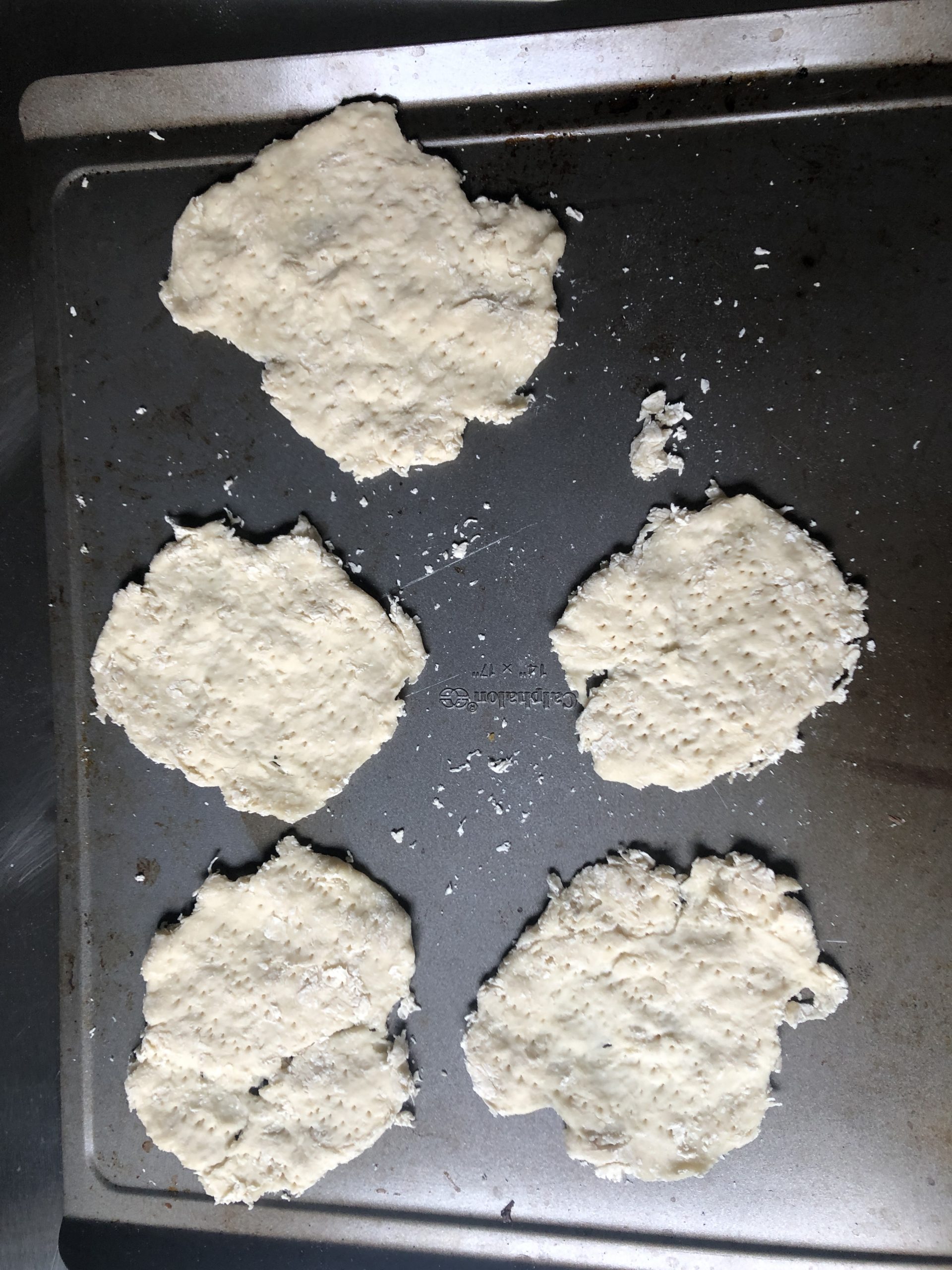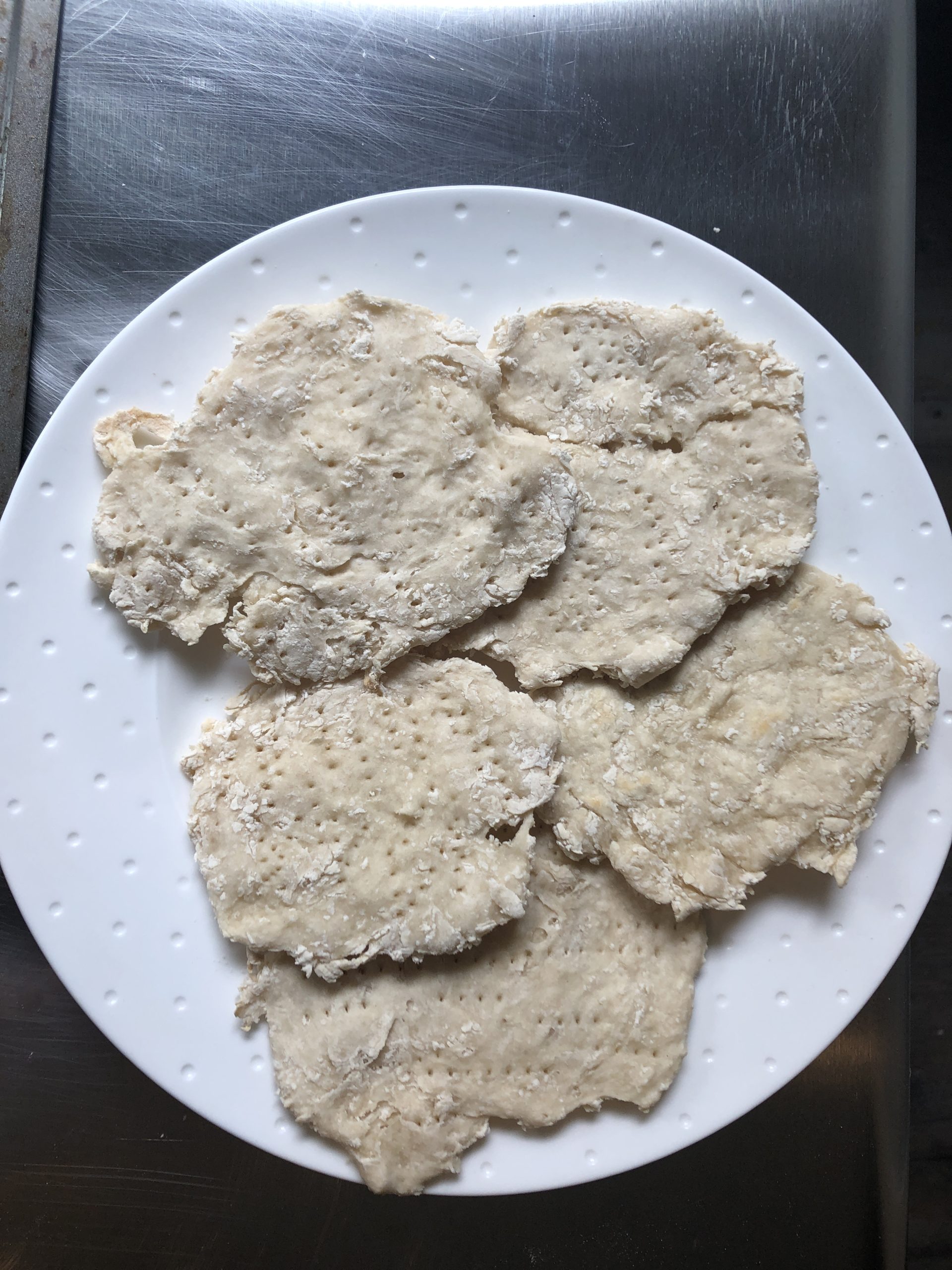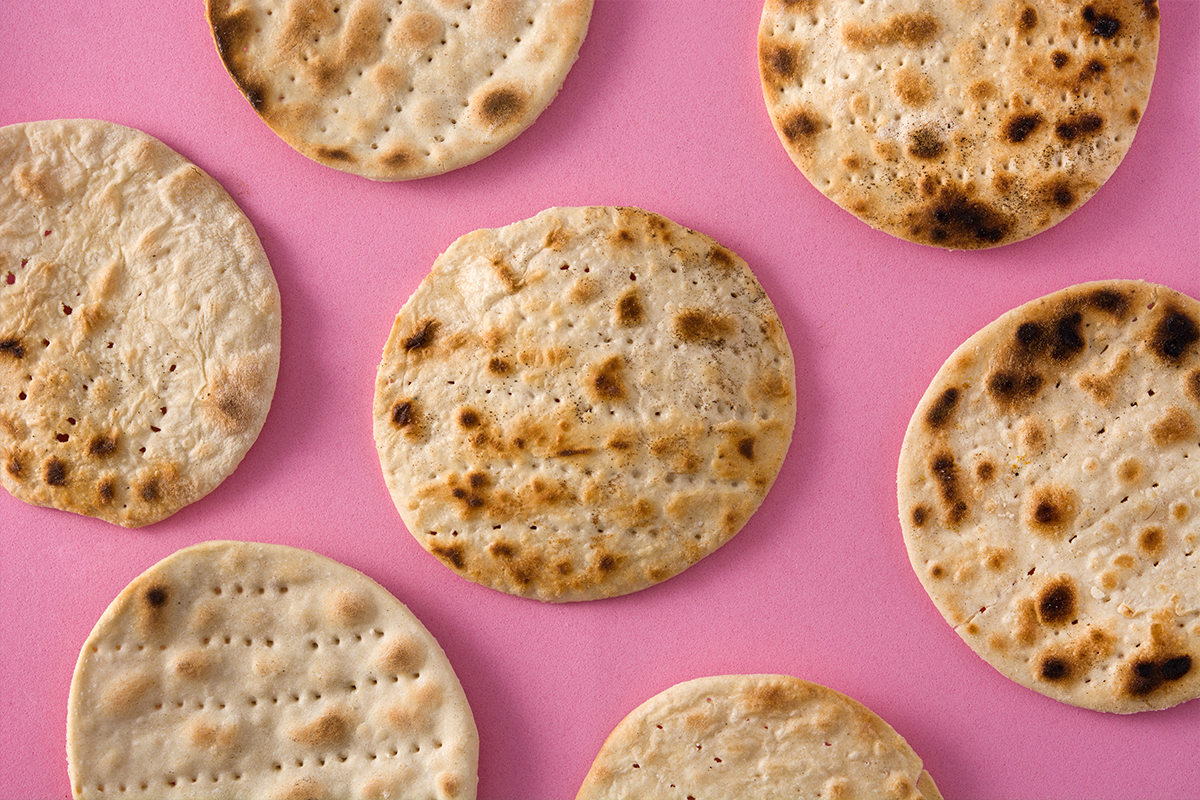After finishing our batch of homemade hamantaschen, I half-jokingly asked my Jewish roommate if we were going to make matzah for Passover. He immediately countered, asking why I would want to put effort into making bad crackers from scratch.
In the past, I’ve shared his confusion. As last year’s panic about Zoom seders and raided supermarkets sparked a new interest in homemade matzah, I wondered who could possibly be desperate enough to make the DMV of bread. I quickly backtracked, but my curiosity only grew.
I entered the pandemic incapable of cooking anything more demanding than scrambled eggs. Not only was I unhelpful in the kitchen, I was a liability. My resume of culinary failures ranged from countless failed grilled cheeses to one absolute fiasco of a French onion soup. But I got on the banana bread bandwagon last spring and have yet to revert to my original domestic disaster state. I’ve spent the past year tending a sourdough starter, conquering babka, experimenting with blintzes, and perfecting a fluffy weekly challah. As my year of baking drew to a close, I asked myself, “Am I insane enough to face the final frontier of Jewish carbs?” Yes. I am.
Sifting through the Google results of my initial recipe search, I genuinely struggled to find a matzah recipe that was kosher for Passover, which was… the only criteria I had? To the people baking matzah that isn’t kosher for Passover, please seek treatment. Or just go buy crackers. The only thing worse than making homemade matzah is making homemade matzah that you can’t even eat on Passover. Thankfully, after adding “kosher” to my search terms, Kveller pulled through with this tutorial from last year. Kosher for Passover matzah, I’ve learned, cannot take more than 18 minutes from start to finish. My first task, cranking up my oven as high as it goes, felt dangerous, which, as a proud pyromaniac Jew, I liked. Since my oven takes forever to preheat, I cheated a bit and turned it on before starting the dough. The down time was a great opportunity to call my mom for the first of our three to five daily calls to tell her that I was making matzah. After abruptly hanging up, I gathered the ingredients and started the clock.
The next eight minutes of my life were the closest I will ever get to being on Chopped. Adrenaline coursed through my veins as my primal intergenerational trauma instincts kicked in. This new drive was particularly shocking, considering the fact that I notoriously take half an hour to get dressed and out the door whenever my family needs me to be somewhere. I furiously mixed the water and flour, blessed the dough, and divided it into balls.
Suddenly, disaster struck.
My rolling pin, which I’d used earlier that day, was nowhere to be found. I rummaged through kitchen drawers to no avail before resorting to pinching and stretching the dough with my hands. I stabbed each round with a fork (also dangerous) and put the baking tray in the oven.

With 10 minutes remaining, all I could do was wait. Naturally, this was when I found the rolling pin. I texted my roommates to warn them and did some reading. In retrospect, I could have used this time to update my mom. When I took my tray out of the oven, the dough looked almost the same. I was vaguely disappointed to find them still beige and bland looking. Then I reminded myself: This is matzah. I placed the rounds on a plate and waited for my roommates to get out of class.
Ever the hospitable chef, I let my Jewish roommate take the first bite in a scene comparable only to what happens in the song “The Worst Pies In London.” He, like Sweeney Todd, braced for the worst but was, in his words, “overwhelmingly pleasantly surprised.” My other roommates shared his response, slathering it with Nutella and heavily salting it, respectively. Since I didn’t believe them, I had to taste it for myself. It tasted less like regular cardboard and more like soft cardboard. In other words, it was matzah. No matter how disgusting the result, I relished the feeling of having made something to share with others.

Over the past year, baking has become the most effective cure for my varying levels of boredom, sadness, and existential anxiety. Making homemade matzah, rather than subduing those feelings, embraces them. I ended up with a matzah that tasted like very bland flatbread, yet far more edible than the store-bought variety. Maybe baking at a higher temperature or preheating the baking tray would have given me something closer to the beloved bland cracker. Ultimately, I decided that despite having followed regulations, eating it on Passover would feel like cheating.
Will I always replace my store-bought matzah with homemade? Not unless Stop & Shop betrays me. Am I unhinged enough to make it again? Honestly, yes.



